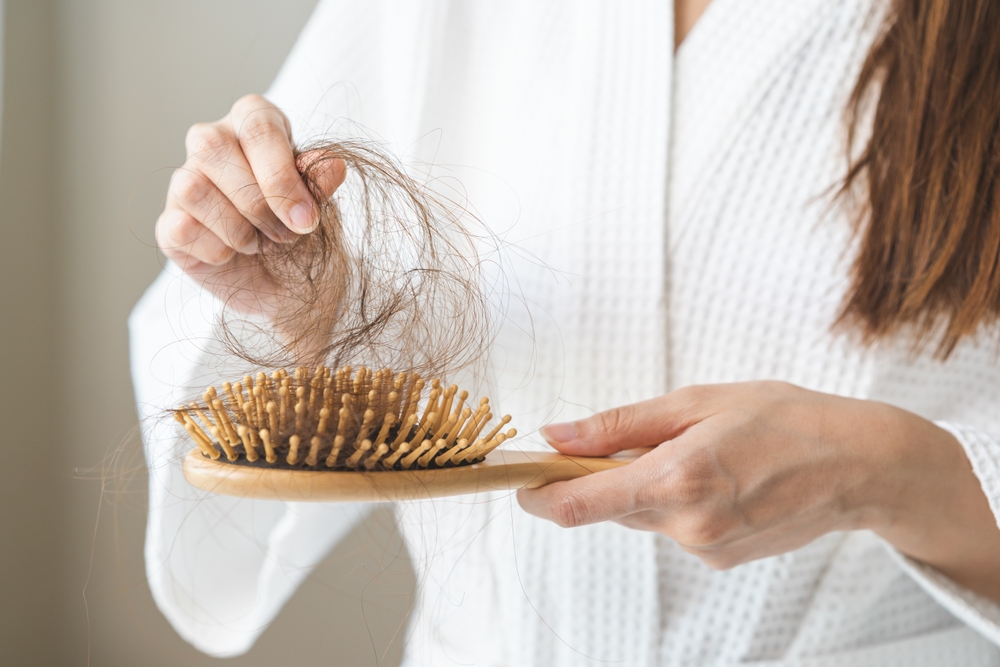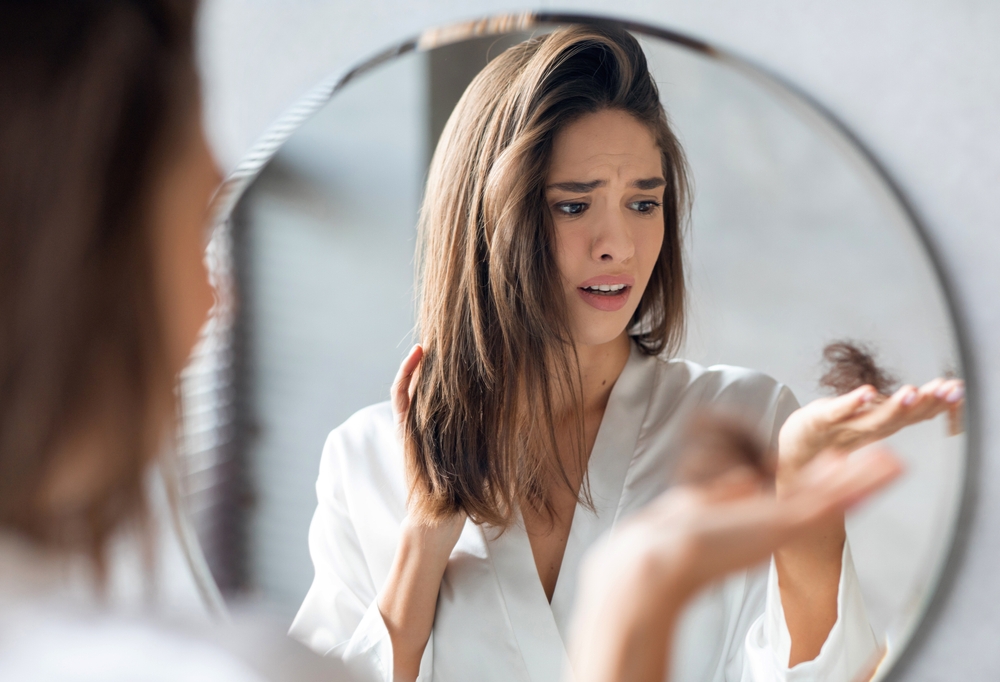Minoxidil has long been a trusted treatment for hair loss, widely used by men and women to combat thinning hair.
Known for its ability to stimulate regrowth, Minoxidil is often the first solution many turn to when faced with hair loss.
However, for a significant number of people, it falls short. Side effects such as scalp irritation or lack of results are common, prompting individuals to seek out alternative solutions.
In response to this growing demand, a variety of promising alternatives have emerged. From natural oils to advanced medical therapies, these treatments offer new hope to those who do not benefit from Minoxidil or are looking for a more suitable approach.
Below, we explore seven alternative treatments that are gaining recognition in the fight against hair loss.
1. Scandinavian Biolabs Hair Growth Routine
Scandinavian Biolabs’ Hair Growth Routine has quickly risen in popularity among those seeking a natural, non-invasive treatment for hair loss. The system combines biotin, caffeine, and plant extracts to nourish the scalp and promote regrowth.
In clinical trials, over 90% of users reported a noticeable reduction in hair shedding after five months of consistent use.
Unlike Minoxidil, which can cause scalp irritation, this routine is free from sulfates and parabens, making it a safer option for those with sensitive skin.
With a holistic approach, the Scandinavian Biolabs system addresses the multiple factors that contribute to hair thinning, providing a well-rounded solution.
2. Rosemary Oil
One of the most well-known natural remedies for hair loss, rosemary oil has a long history in traditional medicine. Recent studies have drawn comparisons between rosemary oil and Minoxidil, revealing similar effects in promoting hair growth.
By improving blood circulation to the scalp, rosemary oil can help revitalize hair follicles, while its anti-inflammatory properties make it an appealing option for individuals with scalp sensitivities.
Given its availability and affordability, rosemary oil is becoming an increasingly popular alternative for those who prefer a natural solution over pharmaceutical treatments.
3. PRP Therapy (Platelet-Rich Plasma)
Platelet-Rich Plasma (PRP) therapy is another cutting-edge treatment that has garnered attention in recent years. The process involves drawing a small amount of a patient’s blood, processing it to concentrate the platelets, and injecting it into the scalp to stimulate hair follicles. PRP has shown promising results in improving hair density and reactivating dormant follicles.
Although PRP requires several sessions and can be more costly than topical treatments, its use of the body’s own healing mechanisms reduces the risk of adverse reactions.
PRP therapy has been hailed as a game-changer for those seeking a more advanced medical approach to hair loss.
4. Redensyl
A relatively new player in the world of hair restoration, Redensyl is making waves as an effective treatment for thinning hair. This non-hormonal ingredient works by targeting stem cells within hair follicles, stimulating regrowth and reducing hair fall.
Early clinical trials have shown that Redensyl increases the number of hairs in the growth phase, offering a promising solution for both men and women.
Because it’s not hormone-based, Redensyl avoids many of the side effects associated with treatments like Minoxidil, making it a safer option for long-term use. For individuals looking to avoid hormonal treatments, Redensyl offers a viable alternative.

5. Low-Level Laser Therapy (LLLT)
Low-Level Laser Therapy (LLLT) has gained traction as a non-invasive, technology-driven solution for hair loss. This therapy uses specific wavelengths of light to energize hair follicles and promote blood circulation in the scalp. Devices such as laser caps and combs make LLLT an accessible option for home use.
Though users need to be patient and consistent with treatments, LLLT has been shown to reduce hair loss and improve the thickness and quality of existing hair. It’s particularly attractive to those who are looking for a non-topical, non-surgical method to combat hair thinning.
6. Pumpkin Seed Oil
Pumpkin seed oil, another natural supplement, is gaining attention for its potential role in blocking dihydrotestosterone (DHT), the hormone responsible for male pattern baldness.
Rich in zinc and fatty acids, it also supports overall scalp health, which is vital for hair regrowth. A clinical study found that men who used pumpkin seed oil experienced increased hair count after 24 weeks of treatment.
Pumpkin seed oil’s anti-inflammatory properties are another added benefit, helping to create a healthier environment for hair growth. As a natural alternative, it appeals to those seeking plant-based treatments without the risks associated with pharmaceutical options.
7. Hair Transplant Surgery
While non-invasive treatments are popular, hair transplant surgery remains the most permanent solution for significant hair loss. Hair transplants involve moving hair follicles from dense areas of the scalp to thinning areas, providing natural-looking results.
Techniques like Follicular Unit Extraction (FUE) and Follicular Unit Transplantation (FUT) have modernized the procedure, reducing recovery time and scarring.
Although the surgery is invasive and can be expensive, it’s often a last resort for those who have not found success with other treatments. For individuals seeking a long-term solution with lasting results, hair transplant surgery is still regarded as one of the most effective methods for hair restoration.
Moving Forward
As the options for treating hair loss expand, individuals now have a wide array of choices beyond Minoxidil. Whether it’s the natural nourishment of rosemary oil, the high-tech solution of Low-Level Laser Therapy, or the cutting-edge science of PRP, there’s a treatment available for nearly every need. Hair loss is a complex issue, and what works for one person may not work for another, making it important to explore all available options.
Those considering these alternatives should consult a healthcare professional to determine the best path forward. With advances in both natural and medical treatments, the future of hair loss solutions looks more promising than ever.





